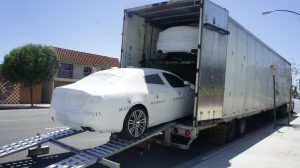The market for Chinese contemporary art has created at a hot speed, turning into the single quickest developing fragment of the global art market. Starting around 2004, costs for works by Chinese contemporary artists have expanded by 2,000 percent or more, with paintings that once sold for under 50,000 now bringing totals above 1 million. No place has this blast been felt more obviously than in China, where it has produced monstrous exhibition areas, 1,600 sale houses, and the original of Chinese contemporary-art gatherers. This frenzy for Chinese contemporary art has likewise led to a rush of analysis. There are charges that Chinese authorities are utilizing central area sell off houses to support costs and participate in far and wide hypothesis, similarly as though they were exchanging stocks or land. Western authorities are likewise being blamed for hypothesis, by artists who say they purchase works modest and afterward sell them for multiple times the first costs and some of the time more.
The people who entered this market in the beyond three years viewed Chinese contemporary art as a reliable bet as costs multiplied with every deal. Sotheby’s most memorable New York offer of Asian contemporary art, overwhelmed by Chinese artists, got a sum of 13 million Walk 2006; a similar deal this previous Walk earned 23 million, and Sotheby’s Hong Kong offer of Chinese contemporary art in April added up to almost 34 million. Christie’s Hong Kong has had deals of Asian contemporary art starting around 2004. Its 2005 deals all out of 11 million was predominated by the 40.7 million complete from a solitary night deal in May of this current year. These figures, great as they are, do not start to convey the dumbfounding accomplishment at closeout of a small bunch of Chinese artists: Zhang Xiaogang, Yue Minjun, Cai Guo-Qiang, Liu Xiaodong, and Liu Ye. The pioneer this year was Zeng Fanzhi, whose Veil Series No. 6 1996 sold for 9.6 million, a record for Chinese contemporary art, at Christie’s Hong Kong in May.
Zhang Xiaogang, who paints enormous, sullen faces suggestive of family photos taken during the Social Upheaval, has seen his record ascend from 76,000 in 2003, when his oil paintings previously showed up at Christie’s Hong Kong, to 2.3 million in November 2006, to 6.1 million in April of this current year. Explosive drawings by Cai Guo-Qiang, who was as of late given a review at the Guggenheim Museum in New York, sold for well beneath 500,000 in 2006; a set-up of 14 works brought 9.5 million last November. As per the Art Value File, Chinese Kunstuitleen artists took 35 of the main 100 costs for living contemporary artists at closeout last year, matching Jeff Koons, Damien Hirst, and a large group of Western artists.





